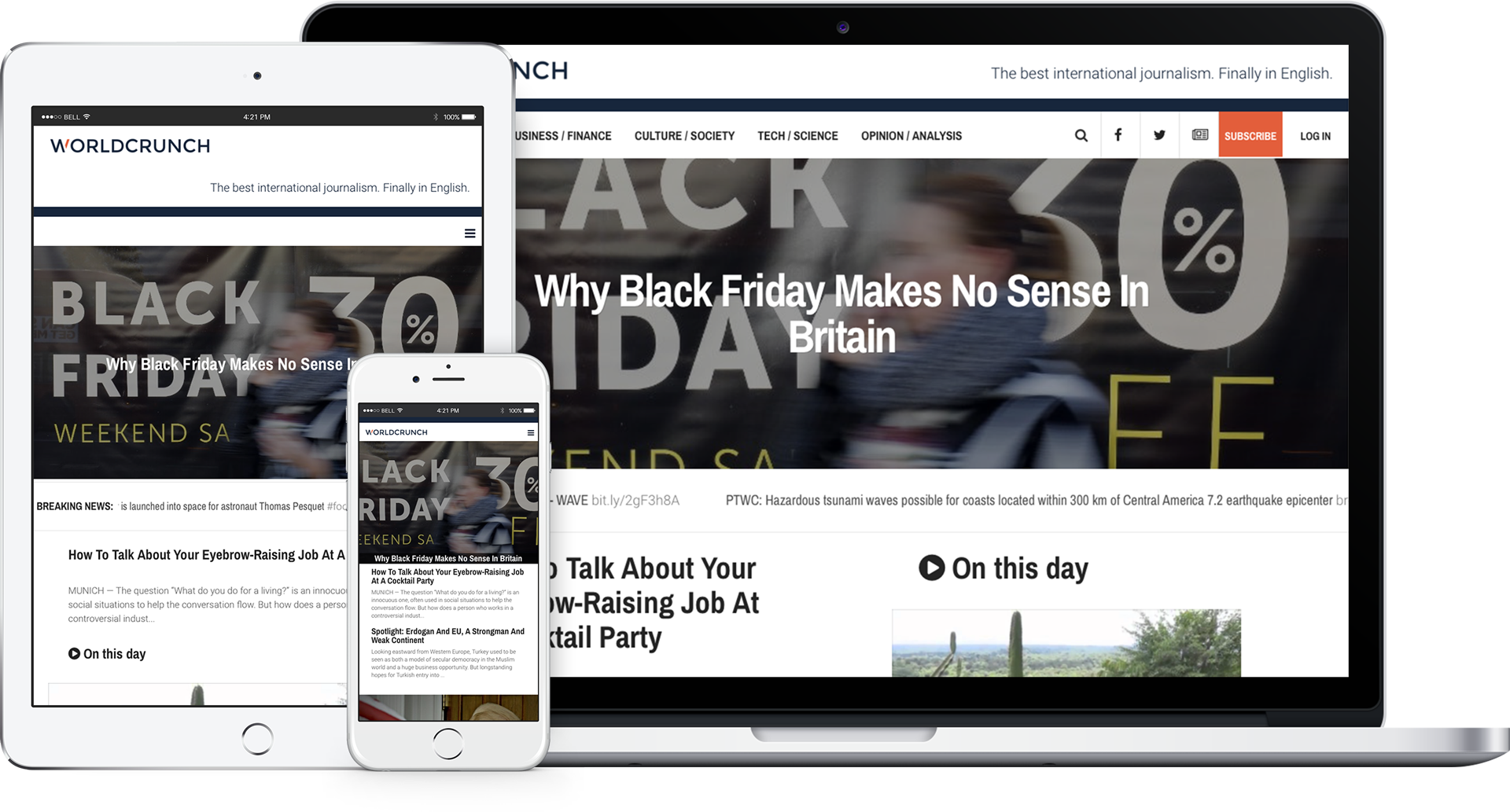-Analysis-
PARIS — Little is known about the financing of terror. Where does it come from? What part did it play in the Paris shootings and Brussels bombings? Are we able to fight it effectively?
We are, on all counts, poorly equipped to deal with this challenge.
In France and our neighboring countries, there is an entrenched underground economy fueled by the trafficking of weapons and drugs, social benefits fraud, gaps in the legal economy fed by high unemployment and the development of a system of solidarity that values community ties above all else. There are also far too few measures to stop illicit foreign money pouring into France.
French Minister of Urban Affairs Patrick Kanner famously declared that there could be "100 Molenbeeks" in our country, a reference to the Belgian town near Brussels that has turned into a hotbed for Islamic terrorism. Some considered his remarks politically incorrect, but Kanner was simply acknowledging that many socially and economically marginalized areas could be potential support bases for the kind of astonishing violence we have recently endured.
Codes of silence
The problems in these areas were first identified in the mid-1990s. They have since supplied terrorists with the means to access guns and explosives, and gave them the logistics to carry out the recent attacks in Europe. These places also offered the help of residents who are ready to abide by a strict code of silence, as was seen when [after the November attacks in Paris, a key suspect] Salah Abdeslam, was able to hide for four months in Molenbeek.

Molenbeek by night — Photo: Aktron
That's the heart of the problem. If we are to fight against gangsters-turned-terrorists by targeting the financing of their operations, we need to focus primarily on the criminal economy that feeds this "ecosystem" in which they feel so at ease. We need to do that, first and foremost, because trafficking makes it possible for them to move forward, without any major difficulties, along the clearly marked path that goes from street crime to mass murder.
Terror acts, like those committed in Paris and Brussels, don't require a lot of money. Even the day-to-day preparation such as organizing an apartment, cars, cellphones and the like, remains relatively cheap and is therefore financially undetectable. It's only after an attack that the financial system offers investigative leads that help ascertain those complicit or the existence of a network. The measures, especially those used after Sept. 11, 2001, are efficient, and investigations have quick results.
Some avenues are hard to control: daily transactions in cash, consumer credits (for instance, Amedy Coulibaly, the Paris kosher supermarket attacker, had borrowed 6,000 euros), informal cross-border transfers like the hawala system, anonymous payment methods, the dark Web. We need to get around these gaps to trace financial flows. But measures such as those announced by the European Union, which calls for stricter regulation on prepaid cards and virtual currencies, are likely to bring about marginal changes, if any.
Meanwhile the Islamic State terror group (ISIS) has amassed the largest treasury ever accumulated by a terrorist organization. Several figures circulate, and must be regarded cautiously, including one of $2.26 trillion, an estimate from the sale of oil, gas, mines and antiquities, as well as funds captured from the central bank in the Iraqi city of Mosul.
We must prevent the group's funds from getting bigger with each military victory. We could start by ensuring that Libya's vast resources do not fall into the hands of ISIS.
Part of the problem is the sluggish pace of blocking financial operations, and a chronic difficulty in identifying, freezing and confiscating criminal assets. "Physical" trafficking is even harder to curtail. We are limited to bombing oil wells and some tanker convoys.
Finally, we need to look at donations from rich families in the Gulf. Although such type of funding has supposedly been reduced under pressure over the past year, it still remains an opaque and sensitive topic. This reality needs to faced squarely if we want to target the wallet of the Islamic State group.
Fighting terror financing can only go so far if we don't first tackle the plagues of the underground economy and trafficking.
*Marie-Christine Dupuis-Danon is a consultant and an expert in criminal finance.





